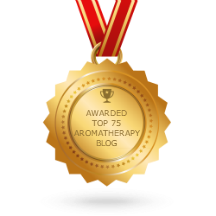 |
| Black Pepper, the spice |
Nature's Gift WANTS to make Black Pepper CO2 available to our clients. Heavens, we want to use it ourselves! After all, my two CO2 mentors both discuss it. Madeleine Kerkhof-Knapp Hayes writes about it, and other CO2 extracts in her book, (available here), the first accessible discussion of the use of CO2 extracts in Aromatherapy healing. And Mark Webb, shortly teaching his second class on the uses of CO2 extracts, in Rochester NY, also teaches its use.
And we have sources, both within the US and in India and Australia. So, what's the problem? Why are we not using it?
Because we can't tell you what is in it, that's why!
The advantage of Black Pepper CO2 compared to the steam distilled oil is its content of Piperine. What is Piperine you may ask (because I did!) Piperine is an alkaloid, found in dried peppercorns, but not a volatile that distills into Black Pepper essential oil. It is believed to be the component in Black Pepper that enhances absorption of the curcurmin in Turmeric. It is the major bioactive component in Black Pepper. For more information than you ever wanted to know about Piperine, its therapeutic uses, methods of production, limited bioavailablity, etc. see this article at the Wiley online library.
Why does this matter? Because when working with an extract containing a powerful bioactive substance it is important to know the content of that substance!
Piperine, in excess, can cause harm, pure and simple. IFRA limits its use in an aromatic compound to 5%. Mark Webb taught the use of a CO2 extract with up to 10% Piperine.
So, since we were supplying most of the aromatics for Mark's first CO2 course, in Boulder, we started our search for Black Pepper CO2.
One well known wholesaler in the US offers it. We ordered a Kilo and requested the CofA.When we received it the CofA did not show the Piperine level. I wrote, inquiring, since I know this supplier does GC all of their oils. The response, "We cannot run a GCMS test on the Black Pepper CO2 due to the non-volatiles in the oil." well, I know that. Another chemist will analyze the CO2 for perhaps four times the cost of a kilo of the extract. I returned our Kilo of the extract. (For whatever it is worth, I know of several online vendors offering this Black Pepper CO2 that we returned. Buyer beware, buyer be educated!)
After this disappointment, my friend Mark Webb connected me with an Australian source. I requested a CofA. They sent one without listing the Piperine content. I asked for the Piperine content. They contacted their producer in India, and told me it was 5%. but they had less than 1/2 kilo remaining.
We imported all they had left, based on the 5% piperine in the CofA. When it arrived we let it stand at cool room temperature. Excess Piperine will crystalize. The half kilo of Black Pepper CO2 was more than 60% piperine. (I am still trying to get my money back on that one.)
The point of all this? People are asking where they can find Black Pepper CO2 because the two people teaching the use of CO2 extracts in Aromatherapy both discuss it.
Our favorite CO2 producer (and Madeleine's source in the past) writes that they no longer produce it because the piperine content destroys their equipment. I have talked to some Asian and Indian producers but they seem to want to state whatever percentage I am seeking in their CofA, and I don't feel comfortable with this. It reminds me of the distillers who will ask what %age of a specific component I want in their essential oil.
SO. Why do we not offer Black Pepper CO2? Because we can not find a source that we can trust. Pure and simple. It's a shame. We have tried. And we will continue trying.


1 comment:
Interesting...thank you for sharing!
Post a Comment